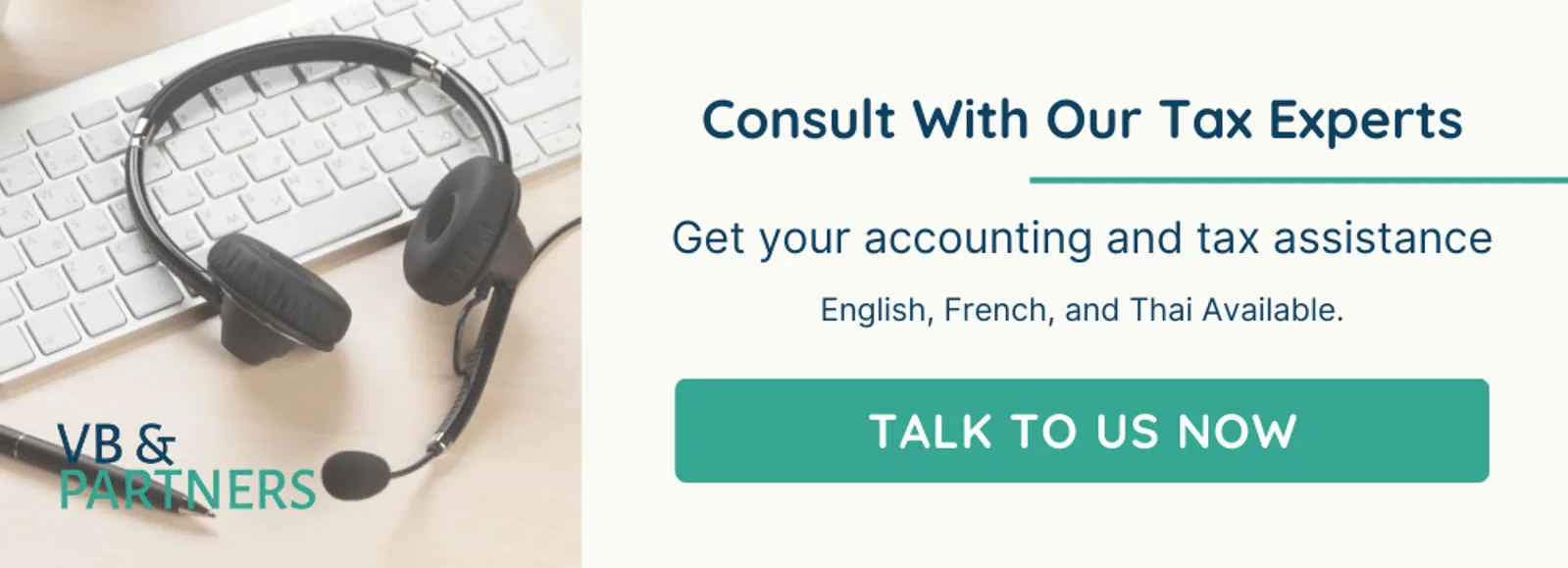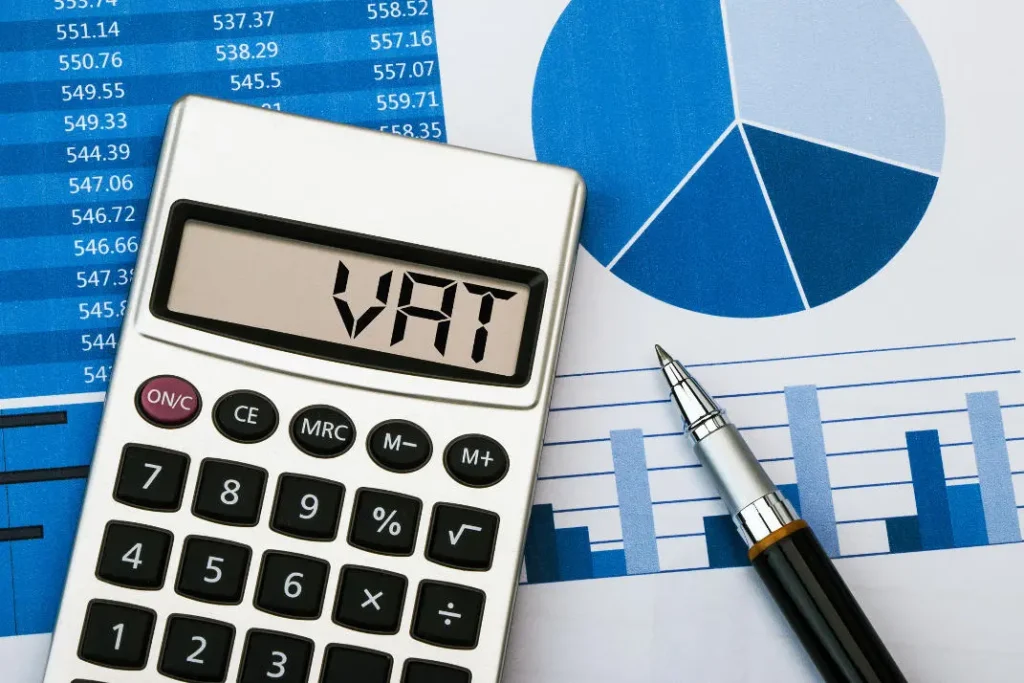TL;DR Changing your accounting company in Thailand can help improve financial management and compliance. Many businesses switch due to poor communication, lack of tax expertise, or limited advisory support. The best time to change firms is at the start of a new fiscal year, though immediate changes are possible if issues arise. A smooth transition requires collecting key financial documents, coordinating with both providers, and updating all system passwords. Choosing the right accounting and tax consultant ensures accuracy, better service, and long-term business efficiency.
Introduction
Changing your accounting company is not an easy decision for businesses in Thailand to make as it often leads to problems such as finding the right accountant and managing the transition.
Businesses in Thailand may find that their current provider is no longer a suitable option due to issues such as poor communication, a lack of relevant industry expertise or limited services on offer. In these cases, changing to a more suitable accounting firm can be an important step in protecting and improving your business operations.
In this article, we’ll cover the main reasons why companies in Thailand decide to change accounting firms, when the best time is to make the switch, and what steps are required to ensure a smooth change.
Key Points
- Businesses will often change their accounting company due to lack of industry expertise, limited service scope, poor communication, or restricted access to financial data.
- The best time to switch accounting firms is at the start of a fiscal year, though immediate changes can be made if there are serious concerns about the current provider.
- The transition process takes between a few days to two weeks, with most firms requiring one month’s notice before the switch.
- Essential documents for transition include trial balance, general ledger, financial statements, tax returns, and payroll records.
- After switching firms, companies should update all passwords for tax filing, financial statements, social security, and accounting systems to ensure security.
Why would a SME in Thailand Want to Change an Accounting Company?
An SME in Thailand may want to change to another accounting company for several important reasons. Finding the right accounting firm in Thailand for your needs can be challenging, especially for foreign owned businesses. Many SMEs initially choose a firm based on limited information such as good reviews on Google or a recommendation from someone, only to discover that the level of service and expertise doesn’t meet their needs.
Some examples of the main reasons why an SME may decide to switch accounting firms include:
Poor Communication and Language Barriers
Many foreign business owners in Thailand find that their accountants are slow to respond to their emails or messages, fail to give proactive advice and only provide advice when directly asked, or don’t follow up on key tax and compliance issues, resulting in fines due to missed deadlines or incorrect filings.
When looking to change to a new accounting company, foreign business owners should also consider how their chosen accounting firm deals with communication and their responsiveness. For example, is the only way to communicate with your assigned accountant via email, or will you be able to contact them via messaging platforms like LINE or WhatsApp for quicker responses?
Working with an accounting firm who offers clear and easily accessible communication is important as a business owner. Many foreign businesses complain that contacting their assigned accountant is challenging, with frequent slow responses or even no response at all to their questions. In Thailand, it is common practice for many accountants to only reply to questions during certain times, for example when they need to prepare our monthly filings and need additional information.
As a business owner you may have questions about invoices, or suppliers and clients might request specific company documents or information, if your accountant is not active and slow to respond, it can quickly become a problem and potentially cause delays and issues.
Read also: How to Issue a Tax Invoice/Receipt in Thailand
Language Barriers
Language barriers or not having English speaking staff is another important consideration for businesses as this can lead to misunderstandings and errors. More importantly it may mean that foreign investors miss out on potential optimisation opportunities due to not being aware or able to understand.
Language skill is especially important for firms that have a lot of international transactions or are part of an international group of companies and relies upon transfer pricing. Your Thai accountant must understand both local and international transfer pricing regulations in order to properly settle the accounts for any relevant transactions. In order to successfully do this, they must be able to communicate with accountants and businesses in other countries.
Read more:
Transfer Pricing Regulations in Thailand
A Lack of Proactive Advice or Support
Another common complaint we hear about is that many accountants in Thailand only focus on compliance and basic bookkeeping. However, many business owners in Thailand, particularly foreigners, may need accounting assistance beyond these basic services. This could include areas like tax optimization and strategies for more efficient returns.
This is why we recommend hiring an accounting firm that offers or includes advisory services. Ideally, your accountant should offer a minimum amount of advisory time each month and be available to respond to basic queries and questions.
Lack of Industry Specific Expertise
An accounting firm without experience in a client’s specific industry may not be able to provide the correct or relevant advice or understand industry-specific regulations. Working with an accountant who understands your specific industry and the details of your operations can provide much more accurate and relevant advice. This is especially if your business is subject to different accounting and tax requirements. Common examples include:
- BOI-promoted companies require accountants who understand how to manage tax exemptions and compliance with BOI reporting rules.
- Companies with international clients may be subject to complex VAT and withholding tax requirements.
- Manufacturers or factories must handle inventory and stock management correctly in their accounting systems.
- Restaurants and retail businesses often deal with high-volume, low-value transactions that require efficient bookkeeping practices.
Read more:
How to Choose Your Accounting Firm in Thailand

When Should the Switch to a New Accounting Company be Made?
The best time to change your accounting firm is at the beginning of a new fiscal year. This is the most convenient time as most companies in Thailand choose to have their financial year end on December 31st. Changing firms after the financial year end will allow the previous firm to complete the year-end closing properly and also give the new firm a clean start for the new year.
However, if you need to make a change due to your current provider not performing up to expectations or incompetently, an immediate change is recommended. In this situation, it’s really important to check the agreement with your current service provider, and figure out the conditions and requirements for terminating the agreement.
Since companies in Thailand are required to perform monthly closings for VAT, tax filings, and payroll, the most practical time to switch mid-year is at the end of a calendar month. This allows the new firm to take over starting fresh from the following month.
If the switch needs to happen before the financial year end, it’s important to manage the transition carefully as the old accountant will have access to sensitive financial information and data, so maintaining a professional relationship during handover is highly recommended.
One final consideration for business owners looking to change firms is that they should make sure that all relevant financial data, accounting software access (if applicable), and system logins are shared with the new provider.
How To Switch To A New Accounting Company
Once the decision has been made to change to a new accounting firm, the transition may seem complicated, however, in practice, the process is straightforward.
When changing your accounting providers, your new accounting company will manage the handover themselves and coordinate with your current provider to collect all necessary information and documentation. However, it is recommended to check your service agreement to make sure this is the case.
In Thailand, most accounting firms will require a one-month notice period before you can begin the onboarding process with a new company. Once this notice period has been completed the new accountant will be able to over from the following month.
The onboarding process for your new accounting partner should take approximately 1 month. The actual length of the onboarding process depends on your business complexity, transaction volume, and the current state of your bookkeeping and tax filings.
A professional accounting company should be able to take care of the entire transition process with minimal disruption to your business operations.
Please make sure that before switching providers, you have fully assessed your business needs and have confirmed that your new accounting firm can provide all the services you require.
Such services include:
- bookkeeping,
- tax compliance,
- financial reporting, and
- business advisory.
What Documents are Required from the Previous Accounting Company When Changing Providers?
When changing to a new accounting firm, the longest and most difficult part of the process is often collecting the required documents from the previous firm. A common issue that could cause delays is when the old firm is slow in providing the required documents, this may be because you are no longer a paying customer, you aren’t a priority.
The following documents will be required when changing to a new firm:
Inventory Reports: Detailed records of stock levels and valuations.
Trial Balance: A summary of all ledger balances to ensure credits and debits are balanced.
General Ledger: A complete record of all financial transactions.
Financial Statements: Comprehensive reports detailing your company’s financial activities.
Chart of Accounts: A listing of all accounts used in your company’s accounting system.
Bank Reconciliations: Documents reconciling bank statements with your company’s financial records.
Tax Returns: Copies of all filed tax returns.
Payroll Records: Detailed records of employee compensation and related tax filings.
Accounts Receivable and Payable Reports: Lists of outstanding customer invoices and unpaid supplier bills.
Fixed Asset Register: A log of all fixed assets owned by your company.
Other Considerations for Changing Accounting Company
When the transfer and onboarding to the new accounting firm has been completed, businesses should make sure to update all passwords that have been shared with the previous accounting firm. This is recommended as it will ensure that the old firm can’t accidentally or otherwise access your confidential information.
Important passwords to change include:
- tax filing systems with the Revenue Department,
- financial statement filing systems with the Department of Business Development,
- social security filing systems, and
- any company accounting systems used collaboratively online.
Our Thoughts
Finding a reliable accountant is an important consideration for every business. An accountant should do more than just basic bookkeeping and tax filings, they should be able to demonstrate expertise in your industry’s specific requirements, and help you deal with compliance matters, offer tax optimisation strategies and advisory services.
However, not all accounting firms can provide everything you need, and a change may be required. When you do find the right accounting firm for your business, making sure a smooth and efficient transition and onboarding process is required, otherwise your business may face unnecessary delays or issues.
Disclaimer
This information is provided for general informational purposes only and is not legal, tax, or financial advice.





